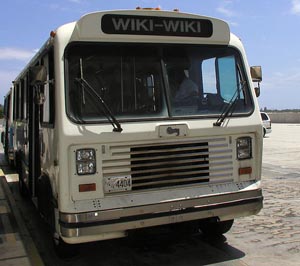From CUNY Academic Commons
7 Things You Should Know About Wikis This article explains how students–and faculty–can use wikis to collaborate on.
Using Wikis as Collaborative Writing Tools This webtext focuses on the use of wiki as a tool for writing and for teaching writing. (by Susan Loudermilk Garza and Tommy Hern)
Teaching and learning online with wikis from the conference proceedings of the ASCILITE (Australasian Society for Computers in Learning in Tertiary Education) in 2004. Pretty basic and focused on online teaching, but a good overview (it’s early–2004 is a long, long time ago in internet time).
Wikis and Wikipedia as a Teaching Tool From the International Journal of Instructional Technology and Distance Learning. Very comprehensive, and includes both wikipedia and using your own wikis in class. And also provides a good overview of other research.
50 Ways to use wikis Great suggestions on how to use wikis in the classroom.
Three Wiki Uses The author breaks wiki use down into three general categories: knowlege repositories, collaborative writing and situation awareness.
Using Group Wikis Online Bill Ashton, from York College, posts an in-depth presentation about using group wikis online on one of his blogs on the Commons, Things I say to my BlackBoard students. Also included in Bill’s June, 2012 post are links to his group wiki grading rubrics and a screencast overview of wikis in Blackboard.
Related Pages


